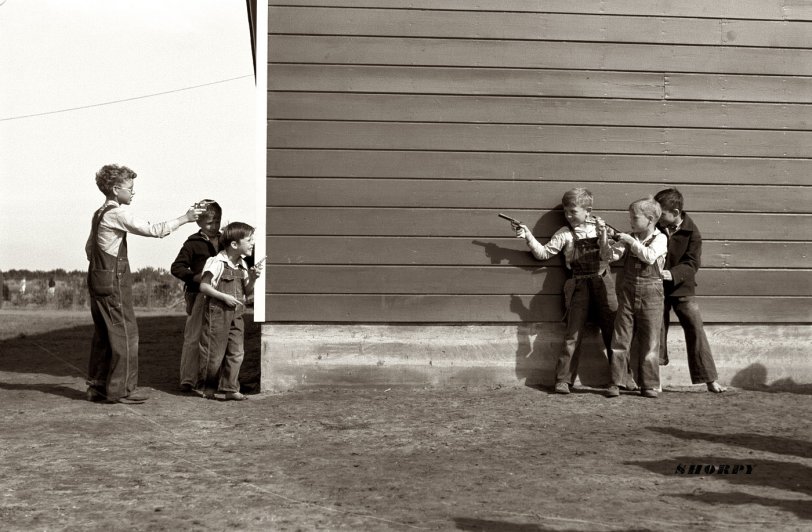Go read something else, I don’t know if this makes any sense.
I suppose admitting to playing ‘dress-up’ as a child is these days akin to admitting a flamboyant homosexuality. But from what I understand — which is admittedly little — homosexuality has become a positive thing! (No, really, I read it on a blog!) And thus, in the proper English tradition, I shall keep calm and carry on.
 Now ladies, you must realize that for little boys there is nothing less frivolous and more solemn than donning a spidey-suit or a spongey, Roman breastplate. There is nothing ironic, sentimental or self-aware about playing Cowboys and Indians. There is no awareness of dress-up being dressed-up.
Now ladies, you must realize that for little boys there is nothing less frivolous and more solemn than donning a spidey-suit or a spongey, Roman breastplate. There is nothing ironic, sentimental or self-aware about playing Cowboys and Indians. There is no awareness of dress-up being dressed-up.
After all, children have such a good idea of who they are that they either laugh at, or are simply confused by that angst-filled self-question, “Who am I?” The fact that he cannot answer the question — besides by giving his name — is no evidence of a child’s self-ignorance, but of his self-knowledge.
Think about it: The perfection of the virtue of patience isn’t to think ‘I am being so patient right now’. No, it is simply to be patient. Likewise, the self-awareness of a child isn’t one that can answer the question, “Who am I?” or think on ‘who he is’. No, of course not. He simply is. He is far too busy living in the Present to evaluate it.

We all ran – if I remember correctly – without shoes on hot asphalt under God’s sun, and there wasn’t much more to it. We knew exactly who we were. This seems to be evidenced by the fact that a 4 year old having an existential crisis would freak us grown-ups out.
The reason the child can wear a costume and wear it not as a joke, nor for an occasion, and without a trace of awareness of wearing anything unusual is this: If the question “Who am I?” is bizarre to him, then so is the question “Who am I not?” An adult cannot –without great effort — put on a Roman centurion’s outfit and be a Roman centurion, for an adult is lost, asks the question of the stars, “Who and what am I?” and thus is always aware of his not-being a Roman centurion. A child, who doesn’t even bother with the question “Who am I” is a Roman centurion.
his not-being a Roman centurion. A child, who doesn’t even bother with the question “Who am I” is a Roman centurion.
This seems to be why we ask children running in costume, “And who are you today?” and rarely, “And who are you imitating/pretending to be today?” We know innately the innate self-knowledge of a child. This is why make-believe was so fun and is so missed – it was real. We were not pretending, for there was no pretense. Is was not that we used our imaginations to the point of belief, it was that we believed our imaginations, for we had not yet learned to question ourselves. We didn’t play dress-up — only an adult could do that. We simply dressed up.
We look back with nostalgia, but we forget that there was no real thought that “I am pretending” in our make-believe. We should learn from this, I think. So often we are once-removed from what we are actually doing: I am praying. I am in love with this girl. I am reading a book. (Oh, that one is the worst.) Or perhaps: I am a writer. I am an artist. I am a Catholic.
Christ said that unless we become like little children we will never experience Heaven, and I do believe he was referring to this life as much as the next. Unless we become like little children we will always feel estranged from ourselves, always outside looking in. The answer is to live in the Present moment, to always and only be who and when we are. Everything else is a lie. For if we are really praying, we cannot think “I am praying,” or else we’ve finished prayer and begun a self-evaluation. Those truly in love don’t think “I’m in love” except as afterthought, because the moment you think it, the moment your thinking about yourself, which seems the opposite of love. If I think “I am a writer” I am certainly not writing.
We need to live our lives as we once played pretend. How? By being Saints. As far as I can tell, the only difference between a Saint and a child is that a Saint works for his innocence, while children are blessed with it. Isn’t it funny? The doom of every man is to start where he wants to be, fall off, and spend the rest of his life trying to get back.











